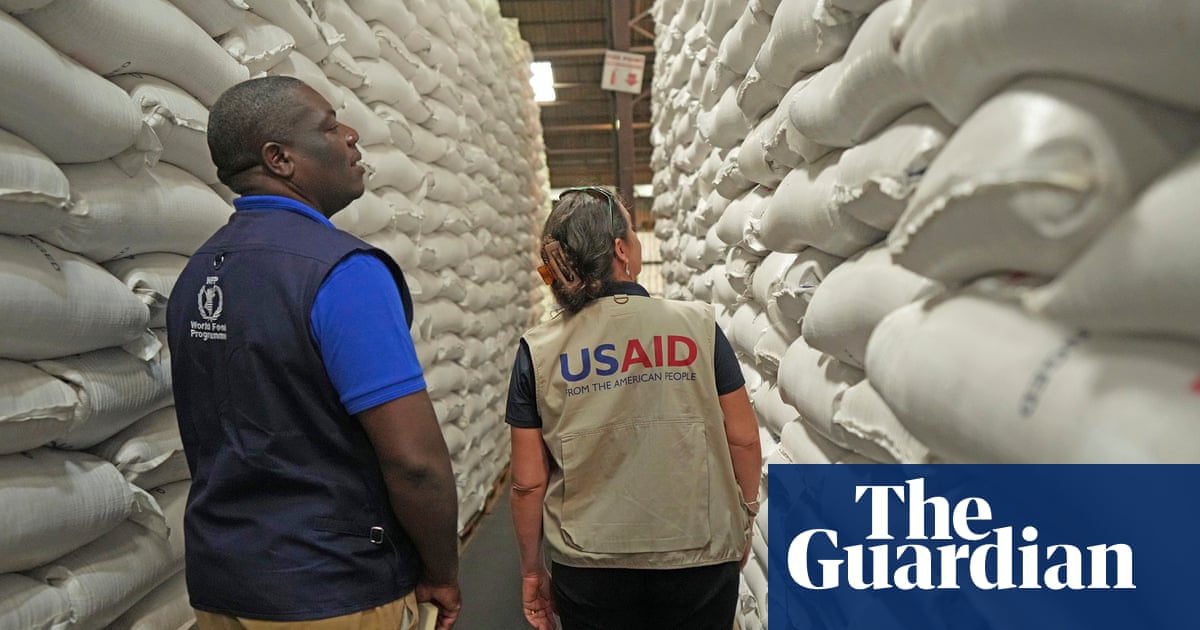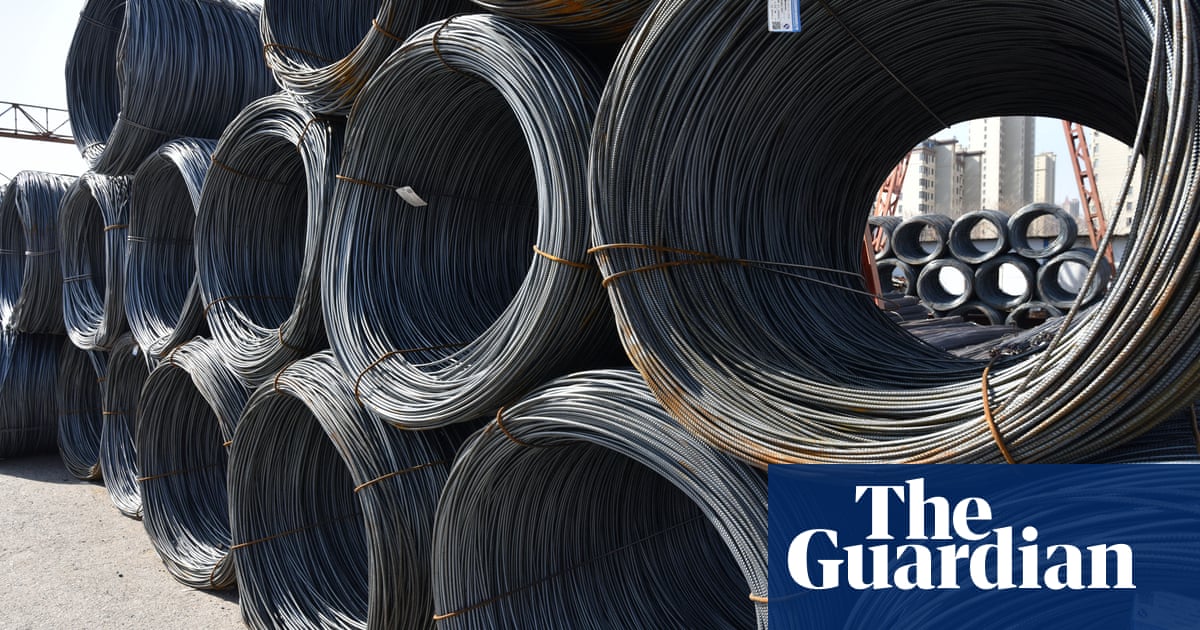As Donald Trump mounts escalating attacks on immigrants in the US in the first weeks of his second term, schools are increasingly in the crosshairs.
He has already revoked protective status for schools and churches, so that immigration authorities can make arrests on school grounds, sending teachers scrambling to figure out ways to protect their students.
Now, hardline anti-immigrant stances are being used to attack public education itself. In January, Oklahoma’s board of education voted to require citizenship information from parents enrolling children in school. The move threatens a longstanding constitutional right to public education for all children, regardless of their immigration status, established in 1982 by the US supreme court.
Legal and policy experts say that while the rule is likely to be struck down in the courts as unconstitutional, the threat alone will cause damage and cause terrified parents to keep their children out of schools, which undermines a fundamental democratic institution: the right to education.
“The purpose of our schools is to educate children, and to educate all our children,” said Wendy Cervantes, director of immigration and immigrant families at the Center for Law and Social Policy (Clasp). “Immigration enforcement of any kind should stay out of our schools, period.”
Requiring proof of citizenship for public school enrollment would severely disadvantage American immigrant families, including those with legal status, experts say. The impact would be vast: approximately one in four children (nearly 18 million in total) have at least one foreign-born parent.
Most immediately, the rule will scare immigrant parents – especially those without documentation or whose cases may be pending – to the point that they keep their kids out of school entirely. This phenomenon, in which immigrant families turn inward and avoid critical resources when they perceive restrictions are tightening, is known in immigration policy circles as the “chilling effect”, and it is widely documented.
“This is exactly the kind of thing that causes parents, very rationally, to hold their kids back and not send them to school,” said Jon Valant, director of the Brown Center on Education Policy at the Brookings Institution, emphasizing that the chilling effect will descend whether the rule is adopted or not. “There is harm done just in talking about this,” he said.

Efrén C Olivares, director of strategic litigation and advocacy at the Southern Poverty Law Center, said that the fear component was deliberate, and would disproportionately affect those whose status is in question. “By being put in the position of having to respond to this question, somebody who may not have regular status is going to really be threatened and be in a vulnerable position,” he said.
For those children who are kept home out of fear, the effect is detrimental, experts say. Those children may opt to join the workforce. And if a child is not old enough for legal employment, or is not eligible for a work permit, they are more likely to be exploited or to work in an unsafe job, explained Melissa Adamson, an attorney at the National Center for Youth Law.
The result is that their entire lives get sidetracked, and their potential – which schools are designed to nurture – quashed. “It cuts off their entire ability to succeed,” Adamson said.
Restricting access to education would also deepen social divisions and negatively affect the entire American economy by exacerbating marginalization and impoverishment, explained Kristina Lovato, director of the Center on Immigration and Child Welfare at the University of California at Berkeley. “Educational access empowers our children with the tools to lead productive lives and contribute to the economy and overall wellbeing of our communities, and every child in the US deserves this chance to reach their full potential,” she said.
According to Cervantes, it is for these reasons that states have such stringent truancy laws in place.
“A basic K-12 education is essential to preventing the creation of a permanent underclass,” she said. “It is in the best interest of not only children, but all of society, for children to be productive and learning.”
The Oklahoma effort is spearheaded by Ryan Walters, the Republican state superintendent who has railed against the presence of “woke ideology” in schools, believes that the Bible should be required learning and has claimed that the 1921 Tulsa massacre – in which 300 Black people were murdered by their white neighbors – was not motivated by race.
While the proposal is singular in its content, the rule sits squarely within the far-right playbook.
Mixed messaging surrounding the measure’s aims contribute to confusion, which experts cite as a core strategy of Trump’s approach to immigration. The text of the Oklahoma rule claims parents’ citizenship information will be used to inform how resources can be better allocated to serve students’ tutoring, language and transportation needs. But Walters has publicly stated that Oklahoma schools would give federal agencies the information so that “families can be deported together”.

“I don’t see how knowing that a student’s parent holds a passport from a different country helps the state understand that student’s needs in the classroom,” said Adamson, decrying the rationale as nonsensical. “We live in a very diverse world. A parent’s nationality doesn’t necessarily tell you anything about their child’s educational needs.”
The measure also politicizes schools, which are already at the frontline of culture wars. “I’m also not surprised that we are seeing some more culture-war battles penetrating schools as they relate to immigration,” said Valant.
Perhaps most critically, the proposal represents a tolerance for the undermining of long-held democratic institutions and values – namely, the free and equal right to public education.
For Olivares, the crux of the matter lies in the fact that the measure would also deny that right to millions of US-citizen children whose parents are foreign-born. That, he says, reveals the rule’s racist underpinnings. “They’re going to be the children of US immigrants whose skin is a certain shade of dark,” he said. “They were born in this country. What does that say? What values does that reflect about a society?”
What’s more, it puts the right to education itself on a slippery slope. Valant said there was no reason to think that students with disabilities or transgender kids wouldn’t become future targets.
“Who do we pull out of the community next?” he asked.
From a legal standpoint, the feasibility of asking parents for citizenship information remains murky, most notably because the 1982 Plyler v Doe case enshrining the right to education for all children regardless of citizenship creates a substantial constitutional hurdle. For that reason, most legal and policy experts anticipate the Oklahoma measure to be struck down if passed into state law.
“It was unwise public policy then to adopt policies that may harm children’s access to schooling, and that has not changed,” said Debu Gandhi, senior director of immigration policy at the Center for American Progress.
They also caution against putting too much faith in the constitution, especially given the track record of this supreme court. Although Plyler has been settled law for nearly 43 years, the court has overturned other cases with even longer legacies, such as Roe v Wade, the 1973 landmark case protecting the constitutional right to abortion, Olivares explained.
Regardless of whether this particular measure takes effect, the situation unfolding in Oklahoma is probably a preview of similar efforts that will be undertaken in school districts around the nation, warned Valant.
“This is a particularly aggressive move when it comes to immigration enforcement in schools, but I don’t think it’ll be the last,” he said.

 German (DE)
German (DE)  English (US)
English (US)  Spanish (ES)
Spanish (ES)  French (FR)
French (FR)  Hindi (IN)
Hindi (IN)  Italian (IT)
Italian (IT)  Russian (RU)
Russian (RU)  11 hours ago
11 hours ago
























Comments